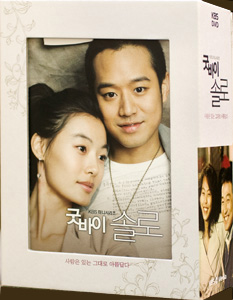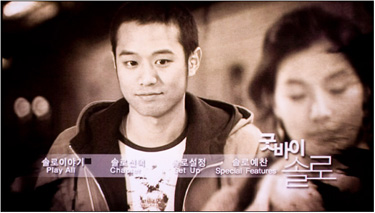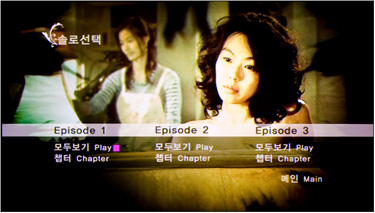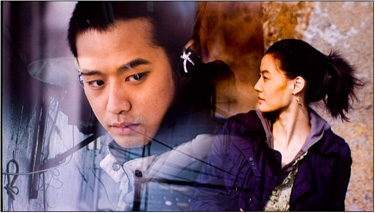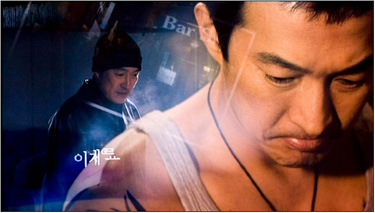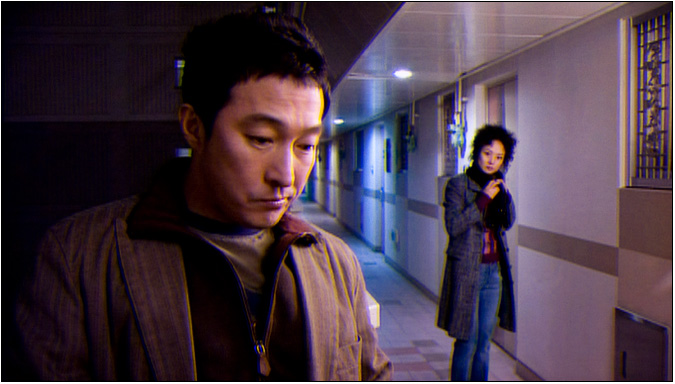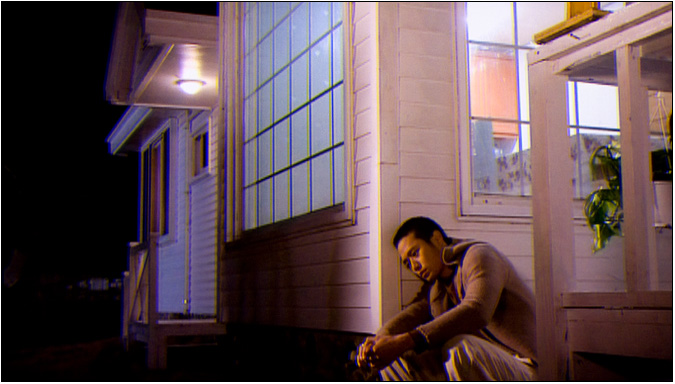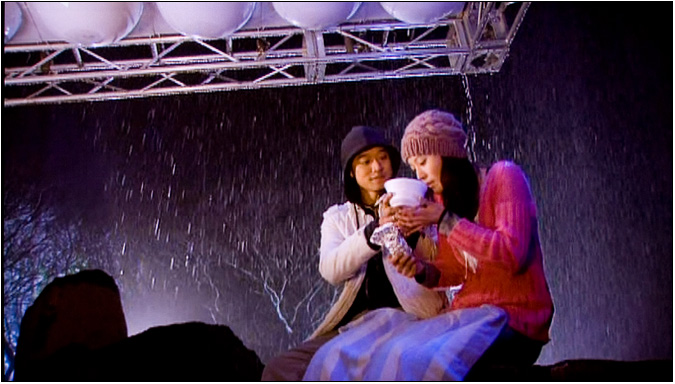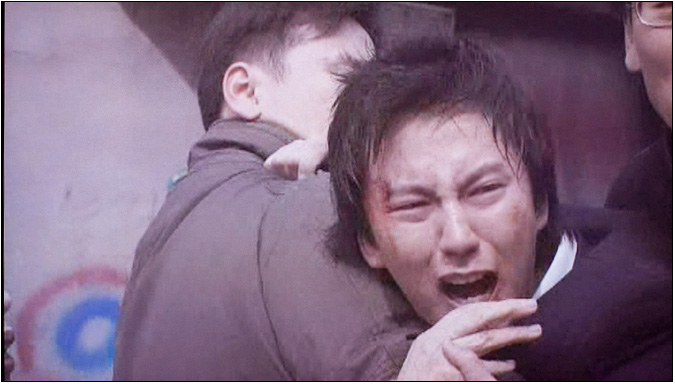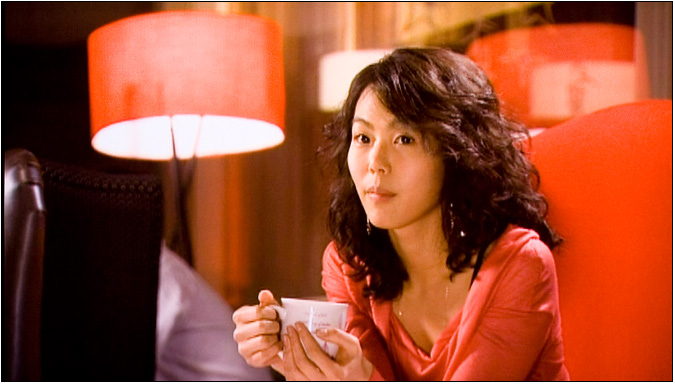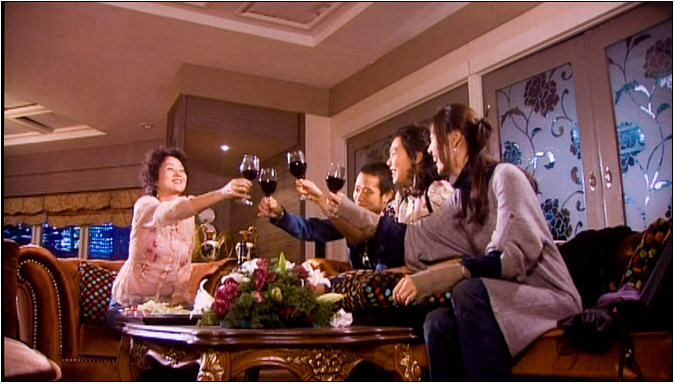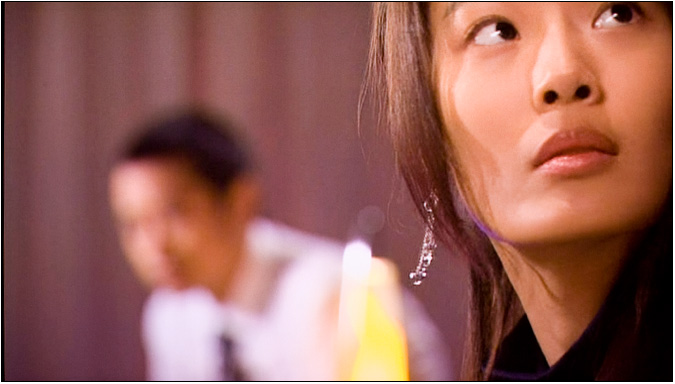The
Series : 9
As "X" points out in his excellent and detailed review in
Twitch Magazine, Goodbye Solo is about loneliness and our
fitful attempts to have relationships with friends, family
and lovers because and despite our separateness. The story
is also about how we deliberately, though often unwittingly
(if you'll permit the possibility of both at the same time),
create our own loneliness and ensure its longevity, despite
our hopes and dreams.
As I watched the series, one (of several) things that
impressed me was the diverse ways separateness can be
depicted photographically and dramatically. It occurred to
me that this is the key creative challenge for the
filmmakers. It is not enough that two people are shown on
opposite ends of couch, or not speaking to each other after
a fight, or that when they do speak, their demeanor cools.
While seeking a fresh language to express separation, in
distinction from loneliness, the actors should also express
subtle degrees of fear, anger, resentment, anxiety or loss.
The audience, for its part, should be able to sense that two
or more characters while sharing the same space, are
unreachable, one to the other. The possibilities are many,
but not endless – and, to be effective in a drama, they,
must be artistically related.
It seemed to me that this was the special gift of Goodbye
Solo. I can't speak to its language – a feature that I
commented on second-hand in regards
Ruler of Your Own World
– but I did recognize and resonate with the varied, but
singularly uncontrived, ways in which alienation and
abortive attempts at reconciliation were laid out and dealt
with. It was this very lack of contrivance that separates
Goodbye Solo from your usual television drama – Korean or
not. And it extends right through to characterization and
performance.
Unlike plot-driven drama series – even good ones like
Winter
Sonata or
Dae Jang Geum -
Goodbye Solo is character-driven. So many Korean
dramas hang their characters onto a dynamic, modulating
plot, without much care to character consistency (unlike
Winter
Sonata or
Dae Jang Geum). If we weren't so
caught up in the passionate emotions generated by the
heartfelt performances of many Korean actors, we would
doubtless cry out "But that character wouldn't respond that
way!" (This was one of my complaints of
One Fine Day.) Not
so, Goodbye Solo, where the drama is all about character
development, with just enough plot to keep us dramatically
involved and anticipating resolution. In this way, Goodbye
Solo has more in common with Yellow Films TV dramas, Someday
and Alone in Love.
When we see friends or lovers together in Goodbye Solo, it's
not just another ruse to sneak in some brutal piece of scene
chewing news causing a character to race out the door to
head off some perceived catastrophe, but an opportunity to
get to know them better. For these are complex characters,
indeed. There are no default good guys or bad guys, but
people with varying degrees of disabling histories, whose
stores are told in the briefest possible series of
flashbacks throughout the 16-hour drama. We meet people of
various ages, from their early 20's to 60's, with different
degrees of maturity and wisdom – some friends since high
school, others just having met. Insecurities and weaknesses
abound, but, for a change, not for the sake manipulating the
audience, but to help us
grow in toleration and wisdom.
In short, Goodbye Solo is one hell of an adult drama – with
adult issues, adult themes, and adult resolutions. There are
neither fairy tale endings nor twisted ironies. While there
still persists vestiges of the Korean habit (in this case, a
very bad habit) of reprising the dialogue and/or image of
the previous scene over a reaction shot of one of the
affected, generally the camera lingers tenderly or painfully
on faces and postures in casual caress or geometric
isolation with only the help of the score, the lighting, and
the actor. And, for the most part, that acting totally
supports the intent of the moment and the arc of the
character's life adventure.
I don't recall a Korean drama series where we get to know so
many characters – and of such a range of ages - so well.
Usually, the focus is on two pairs of would-be lovers. Alone
in Love manages a third, but I would not go so far as to say
that all had nearly the equality of weight or interest as in
Goodbye Solo.
So let's take a moment, please, to single out Bae Jung Ok
(42, More Beautiful Than a Flower) as Yeong-Suk, the very
picture of the changing faces of the moon and one of the
most fascinating characters ever met on Korean television.
Then there's Na Moon Hee (65, You Are My Sunshine; Crying
Fist) as the immutable Granny Mi-young, whose decision to
remain mute for decades is tested repeatedly; Lee Jae Ryong
(42, The Immortal Lee Soon-shin) as Ho-chuel, the gangster,
whose pride runs deeper than any gangster's code; and the
effervescent Kim Min Hee (24, Best Actress Award for "Some
Like It Hot" 2008), the young woman who loves him, despite
their on again/off again love affair, and who brings
Ho-chuel's pride to the breaking point.
But Goodbye Solo centers on none of these well fleshed out
characters, but on the triadic relationship between Min-ho
(Chun Jung Myung, 26, Fashion 70's) and Su-hee (played by
Yoon So Yi, 21, Shadowless Sword), who is the girlfriend of
Min-ho's best friend, Ji-an, (Lee Han, 25, Be Strong, Geum
Soon). While this triangle seems at first blush to be the
very kimchi and ramyeon of Korean melodrama, it is their
past stories, how they came together and are tested that
sets it apart from the usual fare.
All of which means, that Goodbye Solo is not for everyone –
not even the usual K-drama addict. In its television run,
Koreans never warmed up to the show as they do
gut-wrenching, page-turners, or over-the-top comedies,
granting it only a 12% average share. You have been warned:
Are up to living with real people for 16 hours?
![]()

![]()
![]()
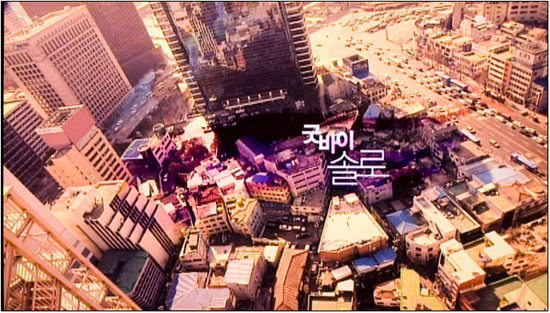
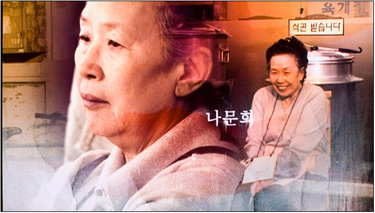
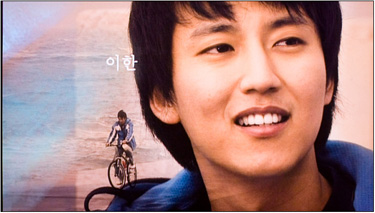
![]()
![]()
![]()
![]()

